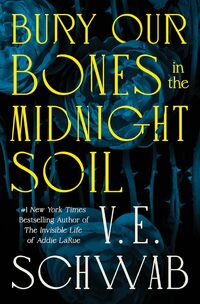Whenever I say I write medieval romance, the first comment I get is “But
you have to do so much research!”
Let’s leave aside for the moment that for me, research is a “get to,” not
a “have to.”
The truth is, contemporary authors have to do research, too. I had
breakfast with Mary Alice Monroe the other day and she is about to go out
in the Atlantic Ocean on a shrimp boat in total darkness for the sake of her
next book. This seems to me an entirely different level of commitment than
Googling “forms of address Richard II.”
The point of all the research, of course, isn’t to educate the reader.
That sort of “information dump” kills the story. We do it because we want to
plunge you into a world you can see, hear, taste, smell, and touch. We want to
draw you in so deeply that you forget about the “real” world and live in the
fictional one, at least for awhile. We try to create an experience so
authentic that you believe not only the world, but the truth of the characters
who live there.
For me, it’s not a only a question of accuracy. Research gives me my
best story ideas. Whenever I get stuck, going back to history always seems to
uncover the nugget that seems perfect for the story.
My latest medieval, THE HARLOT’S DAUGHTER, was actually inspired by a real
person, the illegitimate daughter of a much loved king of England and his much
hated mistress. (Edward III and Alice Perrers, for students of the period.)
When the king died, his mistress and her children were kicked out of
court. Her property was seized and she was nearly banished.
There were only a few tantalizing facts about the children, who
subsequently disappeared from history.
In my imagination, one of her daughters returns to court ten years later,
determined to reclaim her rightful place. It was a reverse Cinderella story:
she begins as near a princess then is hurled out of paradise and into the ashes.
In telling her story, I had to do something I had not done before:
portray real historical characters in my fiction. It added a layer of
complexity (okay, fear) to my work. In writing a real person, it’s not just a
matter of having dates correct. It’s whether your portrayal of a real king and
court meshes with the historical perspective on the monarch.
I’ll admit, I tend to be a little fanatic about this. I think it comes
from my training as a journalist. I write with a map and a calendar at my
elbow and I’ve gone so far as to check tide tables and moon phases for my
historical settings. (Otherwise, it would be far too easy to have a full moon
every night so the hero and heroine could look into each other’s eyes at
midnight.)
Not every author shares my obsession.
I’ve heard some authors say the only thing that matters is the story. If
you’ve constructed a compelling page turner, who cares whether the gun the cop
is carrying is the wrong caliber? Ultimately, there’s truth to that. We’re
telling a story, not writing a textbook. And most readers won’t even know
whether your world is authentic.
What do you think?
What books have you read that really took you into the world the author
created?
Are you rabid about details of one particular period or profession but
not so much about others?
Ultimately, do you care how “accurate” a book is? If so, how can you
tell?
I’m interested in your thoughts.
Best,
Blythe
www.blythegifford.com
NOTE: We apologize that our blog isn't updating so we've put
Blythe's entire blog entry here for you to enjoy. Thanks!
4 comments posted.
Thanks, Sara, for your lovely words! Lots of the research I do doesn't go into the book, but it goes into my head as I write about the characters. It certainly helps me see the world through their eyes. Then I try to pick the "significant detail" to use on the page.
Blythe
(Blythe Gifford 5:21pm November 14, 2007)


 © 2003-2025 off-the-edge.net
all rights reserved Privacy Policy
© 2003-2025 off-the-edge.net
all rights reserved Privacy Policy